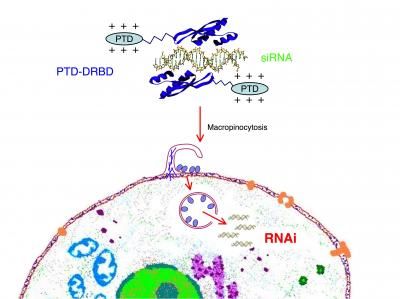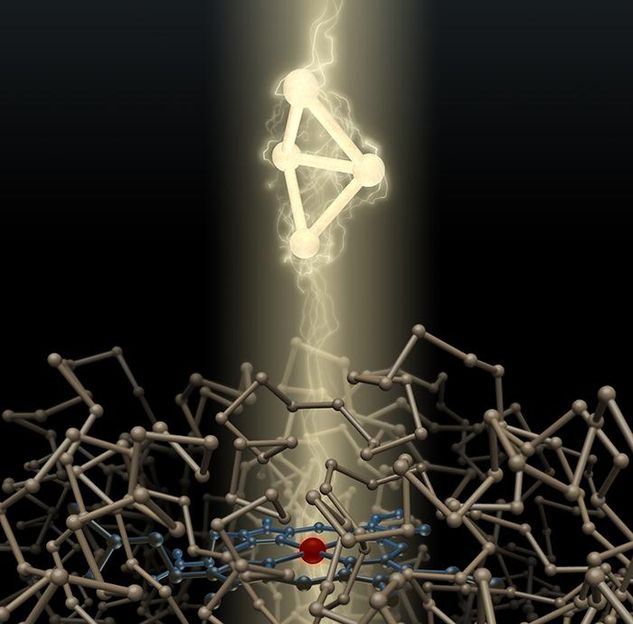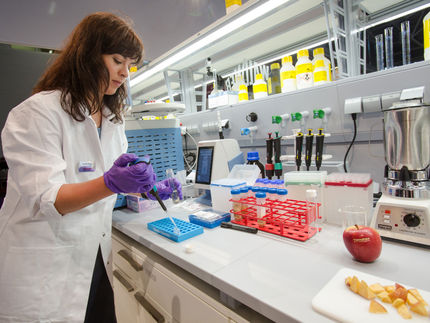Science for the protection of consumers
BfR publishes its Annual Report for 2008
Do toner particles pose a threat to health? Does dioxin in pork constitute a risk for consumers? Can fragrances trigger allergies? The Federal Institute for Risk Assessment (BfR) assesses risks from many areas of daily life. They include things like chemicals as well as food of plant and animal origin, cosmetics and children’s toys. Faithful to the motto "Avoid crises before they happen", around 700 staff members at the Institute’s three locations in Berlin work on consumer health protection in Germany and Europe. The Institute presents information on the results of its work last year in its 2008 Annual Report. "In 2008 none of the problems in the field of consumer health protection developed into a full blown crisis," says BfR President Professor Dr. Dr. Andreas Hensel. "BfR made a major contribution to this positive situation through its scientific expertise and transparent work."
One chapter in the BfR Annual Report is dedicated to the main areas covered last year. They include the final assessment of the “Toner Study“. According to this study, health impairments caused by emissions from laser printers and photocopiers cannot be ruled out because – given their operating mode – the chemical and physical processes involved lead to further contamination of indoor air. However, most of the emitted particles are not toner particles. There is a need for research to establish the chemical and physical identity of the particles measured. Furthermore, in 2008 BfR scientists turned their attention to the assessment of long-lived organic contaminants that can accumulate in the food chain. In the case of the industrial chemicals perfluorooctane sulfonate (PFOS) and perfluorooctanoic acid (PFOA) they came to the conclusion that, based on the latest scientific findings available, a health risk arising from the intake of the levels of these chemicals detected up to now in food like, for instance, fish is unlikely. Nevertheless, every effort should be made to reduce these levels in food.
Background information on the main topics and further details of the assessment and research activities of all departments of the Federal Institute for Risk Assessment are provided in the new 78-page Annual Report. The Departments for Risk Communication, Scientific Services, Biological Safety, Food Safety, Safety of Substances and Preparations and Safety of Consumer Products report on the projects they were involved in last year.
Most read news
Topics
Organizations
Other news from the department business & finance

Get the life science industry in your inbox
By submitting this form you agree that LUMITOS AG will send you the newsletter(s) selected above by email. Your data will not be passed on to third parties. Your data will be stored and processed in accordance with our data protection regulations. LUMITOS may contact you by email for the purpose of advertising or market and opinion surveys. You can revoke your consent at any time without giving reasons to LUMITOS AG, Ernst-Augustin-Str. 2, 12489 Berlin, Germany or by e-mail at revoke@lumitos.com with effect for the future. In addition, each email contains a link to unsubscribe from the corresponding newsletter.
Most read news
More news from our other portals
Last viewed contents
MorphoSys Achieves Clinical Milestone and Payment in Antibody Alliance

The future of personalized cancer treatment: An entirely new direction for RNAi delivery
Ebola virus disarmed by excising a single gene
A novel human stem cell-based model of ALS opens doors for rapid drug screening
Researchers identify phosphorylation process vital to cancer growth
Analytica 2014: New special exhibit for occupational health and safety
VIB-UGent scientist Jirí Friml receives Körber European Science Award 2010 for research on plant hormones and development





















































